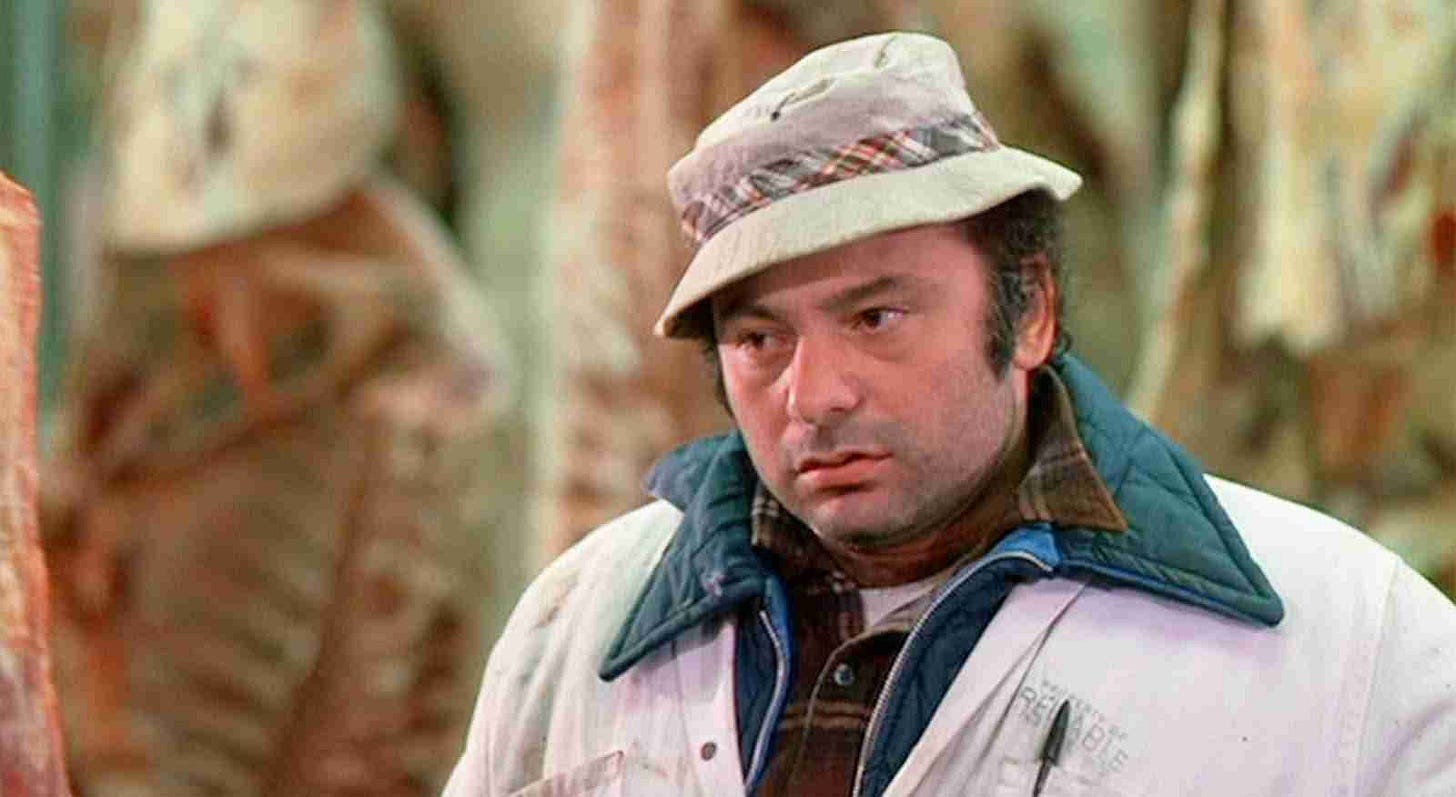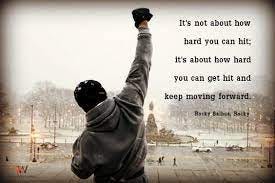I know sometimes I act stupid and I say stupid things, but you kept me around and other people would have said drop that bum. You give me respect. You know it’s kinda hard for me to say these kinda things, cuz it ain’t my way, but if I could just unzip myself and step out and be someone else, I’d wanna be you. You’re all heart, Rock. Now blast this guy’s teeth out!
-Burt Young, Rocky IV
I was sad to hear the news that the incomparable Burt Young passed away last week. Most of us will always associate the actor—born Gerald Tomasso DeLouise—with his greatest role, Paulie in the Rocky movies. There is a small part of me that will also see him as Lou in Back to School, but for the most part, he will always be the cantankerous, set-in-his-ways, gambling, drinking, troubled brother-in-law of Rocky Balboa.
Paulie is the type of character in a movie you end up absolutely loving, despite his shortcomings. While many of his problems are self-inflicted, the rise of the blue-collar, battling hero known as Rocky—a bigger than life persona so masterfully created by Sylvester Stallone—is not possible without Burt Young’s contributions in the six cinematic installments about a boxer nicknamed “The Italian Stallion.”
There are various points throughout the Rocky films that Young’s unkempt, pudgy, lovable, curmudgeon of a character, Paulie, sets up and enhances the Rocky narrative. He does so with humor combined with minimum grace. He embodies the flaws inherent in all of us. He is at times terribly jealous of his sister’s husband, yet his most loyal supporter at the end of the day. He’s full of contrasts. But it is his final role in the film Rocky Balboa that helps deliver what I believe is one of the greatest lessons about life ever told through the art of cinema.
At the outset of the sixth film, we learn that Rocky’s wife, Adrian, has died of cancer. Rocky owns and operates a restaurant named in her honor, and he spends his days between running his business and spending hours sitting at his wife’s graveside. Paulie is back working at the meat-packing plant, and is clearly growing tired of how Rocky is handling the loss and is frustrated that the movie’s namesake is spending more time trying to re-live the past than focusing on the present while battling the “beast” that is inside of him. Making matters worse, Rocky’s relationship with his son, Robert, is a strained one due to the fact that the prize fighter’s only child hates constantly being in his famous father’s shadow.
While all of this is going on, a computer-simulated fight is shown on a national sports network and predicts that if Rocky in his prime were to ever fight the sitting heavyweight champ, the younger Rocky would most likely win. This leads to the current champion challenging the retired, fifty-something Balboa—because what’s a Rocky movie without a fight, right?
As in the previous five films, Paulie’s loyalty wins out, and he is unapologetically supportive of the former champion as he knows that the fight will help Rocky get “the stuff inside” he has been battling out of his system. After agreeing to take the fight, Rocky’s son confronts him about why he shouldn’t accept the challenge, cuing up what I believe is one of the most powerful scenes in movie history. Please click this link before reading on.
In his unique, unassuming, simple way, Rocky Balboa gives us the truth about the world we live in and how things often play out when he tells his son, “The world ain’t all sunshine and rainbows.” He single-handedly addresses the victim card so many folks play throughout life and redefines what success is truly about when he states, “It’s not about how hard you can hit. It’s about how hard you can get hit and keep moving forward; how much you can take and keep moving forward.” To Rocky, “That’s how winning is done.” It’s a stance that he is able to take because he knows he’s got Paulie—among others—supporting his decision.
Throughout the course of the Rocky films, Burt Young’s character is always in Rocky’s corner, both figuratively and literally. He undoubtedly helps his beloved Rocco get back up while he is struggling, bolstering the former champion as much as Rocky helps him. In this way, the two men symbolize the concept of accompaniment, one that has been a focal point of Pope Francis’ ministry. The roads we travel in this life are more tolerable and at times even sweeter when we travel with, or accompany, those in need along the way.
I am sure everyone has or has had a “Paulie” in their lives. That individual who is rather rough around the edges, yet unwavering in their loyalties to us. Maybe someone we lean on just as much as they lean on us. A person who is always there when the dust settles. Someone we can count on when the chips are down. For Rocky, that guy was his brother-in-law Paulie, and just like the Italian Stallion, he was all heart.
-Tommy O’Sionnach






It’s a great one.
Thanks John! I hope you and Katie are well!